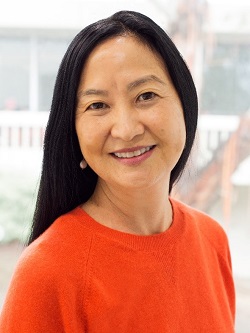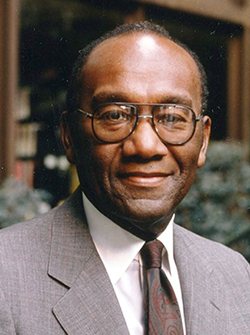NEWSLETTER
|
Two TV Mini-Series with Ford Connections
Recent acclaimed television series, one on public television and the other released initially through the subscription video service Hulu, chronicle civil and human rights struggles over the last several decades that include the stories of two former Ford Foundation figures.
Roberta Uno’s Japanese-American family is featured prominently in the second part of a five-part series on PBS exploring the history of Asian-Americans, and Franklin Thomas, a former president of the Foundation, is a major character in “Mrs. America”, whose focus is the contentious movement to ratify the Equal Rights Amendment (ERA).
That is her story, of forebears forced from their homes into camps around the United States, of uncles who chose to join the United States military to fight for “their country” and of one uncle whose bitterness over the family’s treatment and affection for his heritage drove him to return to Japan and work for that country’s government throughout the war.
She tells her story with a strong sense of regret and pride, describing in vivid language her family’s strength in surviving their ordeal, torments over the divisions caused by their treatment and the lingering effects of efforts to understand the emotions and motivations that held some family members together and divided others.
Steinem has said in previous interviews and articles that, though their relationship was “short-lived”, Thomas was “the longtime love of my life, and best friend”. His stances on race and gender equality, she has said, were a strong influence on her life and work.
“One day,” she has quoted him as telling her, “your descendants will think it incredible that we paid so much attention to things like the amount of melanin in our skin to the shape of our eyes or our gender instead of the unique identities of each of us as complex human beings.”
The mini-series, while portraying the actual people involved in real events, takes some liberties with the story. Its creator, Dahvi Waller, has explained that she “decided not to reach out to anyone” in crafting scenes and re-creating dialogue because she “really wanted to be free to imagine these private conversations and not be beholden to one person’s memory of what happened 40 years ago.”
That approach led some reviewers to pointedly emphasize aspects of Thomas’s life and career not dwelt on in the series.
“….while he may not be the household name that Steinem is,” wrote one, “he’s made a prominent impact on the world.”
Wrote another, “There’s much more to Thomas than his connections to Steinem. He’s quite a history-maker in his own right. He’s a lawyer, community organizer, activist, the first African-American to sit on the board of Citibank and the first African-American president of the Ford Foundation, a position he held for 17 years.
“During his time at the helm of the philanthropic organization, he focused on projects that targeted poverty, human rights and developing leaders in post-apartheid South Africa.”
|



